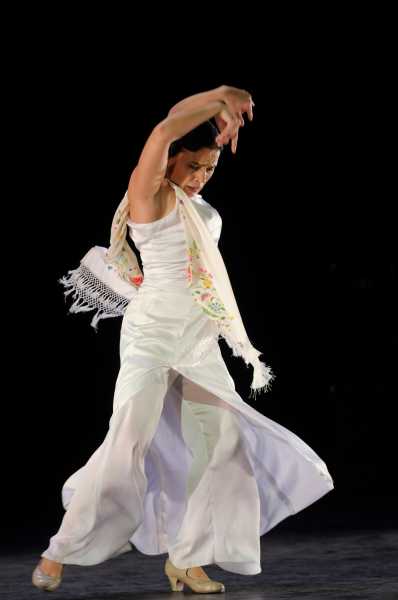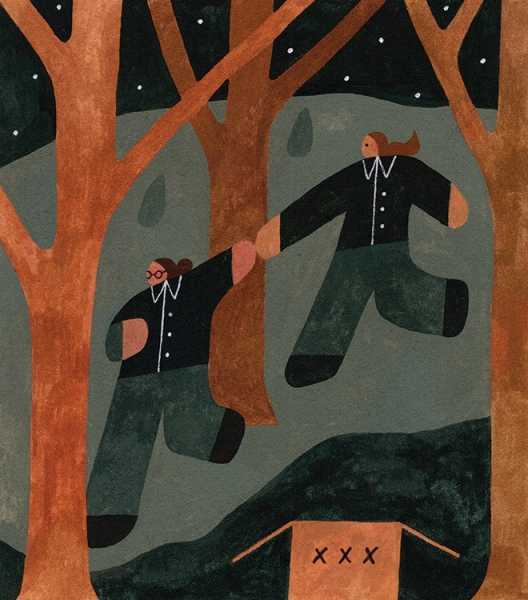
Save this storySave this storySave this storySave this story
Rachel Syme
Staff writer
You’re reading the Goings On newsletter, a guide to what we’re watching, listening to, and doing this week. Sign up to receive it in your in-box.
New Year’s Eve is a time for revelry, merriment, excess; it is the last day to indulge in the fatty, charred ends of the previous year before wiping the slate clean. For this reason, I see no better place to be that night than at the Metropolitan Opera, where overdoing it is not only welcomed but encouraged. Every year, the Met throws a black-tie New Year’s Eve gala and dinner dance to herald the turning of the calendar (and raise copious funds in the process); although this event, which starts at twenty-five hundred dollars a ticket and goes up to sixty thousand dollars for a “Center Parterre box”-level table, is far too pricey for us groundlings to enjoy, the performance beforehand is open to the general public. As of this writing, there are still a few (quite affordable!) seats available for purchase in the Family Circle and Balcony sections.

Aigul Akhmetshina in “Carmen” at the Metropolitan Opera.Photograph by Jonathan Tichler
At 6:30 P.M., on Dec. 31—an earlier than usual starting time, to insure that the show will end well before midnight—the Met will début a new production of Bizet’s “Carmen.” The opera, which is now nearly a hundred and forty-nine years old, is not a new sensation, but its star, the prodigious young mezzo-soprano Aigul Akhmetshina, who made her Met début just last year, in “Rigoletto,” brings a fresh, ferocious energy to the stage. In 2018, at just twenty-one years old, Akhmetshina became the youngest singer ever to take on the title role of “Carmen” in a performance at London’s Royal Opera House. At twenty-seven, she will be the youngest singer to step into the role in a new production on the Met stage. The opera also marks the Met début of the director Carrie Cracknell, a British phenom whose spare productions of Greek tragedies such as “Electra” and “Medea,” at the Young Vic and the National Theatre, respectively, have earned her a reputation as a deft and sensitive interpreter of complicated women’s stories. It will be exciting to see what she does with “Carmen,” about a man who becomes so obsessed with a beautiful but cunning woman that he turns to violence in order to control her; the story is far overdue for a feminist reimagining. Even if you end up having other New Year’s plans—or if the cheap seats sell out—Cracknell’s “Carmen” will run through Jan. 27, with a second run beginning on April 25 (though if you want to hear Akhmetshina sing “Habanera” you must go before her final performance, on Jan. 27). Here’s to clean slates and high notes.
Spotlight

Photograph by Maria BaranovaThe Theatre
The theatre sector wobbled for a moment when it seemed that the vital Under the Radar festival—a showcase for experimental work and international scene-shakers—might be cancelled after it lost its home at the Public Theatre. Happily, that one home has now become a dozen: in January, venues such as Abrons Arts Center, Japan Society, and La Mama band together as a wide network, where the weird show(s) can go on. Thank heavens, because nowhere else do we get such a concentrated burst of formal transgression, including the fearless Nile Harris production “this house is not a home” (pictured above), a furious, dance-filled eulogy for Harris’s friend Trevor Bazile and a goad to a hipster scene that flirts with both fadism and fascism.—Helen Shaw (Various venues; Jan. 5-21.)

About Town
Podcasts
“I think there’s something fundamental to our human nature where we really enjoy messing with our own senses,” Tamar Avishai says in her sage and buoyant art-history series, “The Lonely Palette,” a member of the excellent Hub & Spoke audio collective. “We love it when something becomes something else entirely, like that image of a vase morphing into two profiles.” She’s introducing Grant Wood’s “American Gothic,” that enduring font of deceptive mystery—but she could also be describing the pleasures of her own podcast, which since 2016 has invited listeners to contemplate visual art through audio and imagination alone. Rothko, Caravaggio, Ono, “Dogs Playing Poker”: each episode focusses on a single work, guided by Avishai’s attentive mind and ear, and by the reflections of critics, curators, and art lovers, and enhanced by exquisite sound design. The effect is both soothing and invigorating, like a sunny morning at a great museum.—Sarah Larson
Off Broadway
“Buena Vista Social Club”—a new musical, directed by Saheem Ali, with a book by Marco Ramirez and music by the eponymous musical collective—draws its fun, its exuberance, and its occasional moments of emotional depth from its focus on how voices come together to change societies. In Havana, Cuba, the young Juan de Marcos (Luis Vega) asks the legendary singer Omara Portuondo (Natalie Venetia Belcon) to record with the band he’s assembled, to give Cuban music its due. The show splits into two strands: in the present, there’s the recording project; in Omara’s youth there’s trouble, and musical and political ferment. The show is an amazing time, but precise politics are never openly discussed—a flaw in a show whose premise is that music is politically consequential.—Vinson Cunningham (Reviewed in our issue of 12/25/23.) (Atlantic Theatre Company; through Jan. 21.)
Dance

Soledad Barrio, of Noche Flamenca.
Photograph by Andres D'Elia
Flashy production values have become increasingly central to flamenco shows; Noche Flamenca is remarkable for keeping things simple. In “Searching for Goya,” two singers, two guitarists, and four dancers share the stage. The absent partner, invoked in words and movement, is the Spanish painter Francisco Goya, whose work evoked the darker, more violent corners of the imagination. The mood is shadowy, the palette a turbulent chiaroscuro. Each of the evening’s interlinked dances is loosely inspired by images from Goya’s nightmarish works, including the hooded figures of “Los Ensacados” and the desperate combatants of “Duelo a Garrotazos.”—Marina Harss (Second Floor Theatre at 122CC; Dec. 27-Jan. 16.)
Opera
Georges Bizet’s “Carmen,” with its intensely seductive chromaticism, is often framed as the story of Don José, a small-town man, naïve and a little softheaded, who is driven mad with desire for Carmen, an impossibly alluring woman. Don José blames Carmen for his need to murder her, and the British director Carrie Cracknell seizes upon that hideous logic of gender-based violence in her new production for the Metropolitan Opera. Cracknell says she sees in Don José “a character who lacks a central sense of self,” a man whose isolation from the various communities he tries to join destabilizes him and makes him dangerous. Aigul Akhmetshina and Piotr Beczała star, respectively, as Carmen and Don José; Daniele Rustioni conducts.—Oussama Zahr (Metropolitan Opera House; select dates Dec. 31-Jan. 27.)
Indie Pop

Photograph by Jewel Thompson
The singer and guitarist Greta Kline has performed under many names since her early Bandcamp days, in the twenty-tens, but she has been defined by her music as Frankie Cosmos. With her 2016 album, “Next Thing,” Kline announced herself as indie pop’s most stunning miniaturist, presenting detailed, scaled-down scenes from her life as pithy songs. In recent years, Frankie Cosmos has transformed into a full-on band. The group’s last two albums—“Close It Quietly” (2019) and “Inner World Peace” (2022)—have brought a richness to Kline’s bedroom pop without compromising the beloved compactness that has become a Frankie Cosmos signature.—Sheldon Pearce (Baby’s All Right; Dec. 29.)
Movies
The New York-based filmmaker Juleen Compton’s first feature, “Stranded,” from 1965—which she wrote, directed, produced, and starred in—should have launched her career behind the camera and in front of it. Instead, it languished in obscurity and has only belatedly been rediscovered. Its freewheeling, New Wave-like style was in step with the times, but its subject and tone were far ahead. Compton plays Raina, a young American woman who travels through Greece and aboard a barge with her straitlaced American boyfriend (Gary Collins) and a gay French artist (Gian Pietro Calasso). Raina dances and sings, and swims naked by night, living and loving freely and challenging viewers with her defiant stare into the camera, even while expressing doubts, in sharp-edged philosophical dialogue, that she never gives in to.—Richard Brody (Streaming on the Criterion Channel starting Jan. 1.)

Pick Three
January is full of experimental-theatre festivals; here are Helen Shaw’s picks.
1. The new-opera smorgasbord Prototype has many tasty-looking offerings, including an opera, by Huang Ruo, about Chinese immigrants (“Angel Island”) and a song cycle by the Dutch artist Wende (“The Promise”), co-composed by Isobel Waller-Bridge. If I could see only one thing, though, it would be “Terce: A Practical Breviary,” by Heather Christian. Her contemporary gloss on a medieval mass follows in the quasi-sacred footsteps of her exhilarating 2022 masterwork, “Oratorio for Living Things.”
2. Some of the shows in the far-flung Under the Radar festival are returning New York successes, such as “Public Obscenities” and “Pushkin ‘Eugene Onegin’ in Our Own Words”; others are international visitors, including “Hamlet/Toilet,” a Dadaist frolic from the Japanese provocateur Yu Murai. But the rare show that’s both new and local is my top pick: “Open Mic Night,” by Peter Mills Weiss and Julia Mounsey, a duo so committed to the cutting edge of the avant-garde that they (or their collaborators) sometimes bleed.

Illustration by Mary Kirkpatrick
3. Every year gets better at the fringe-forward Exponential Festival, which inhabits various venues in Brooklyn. Big experimental folks such as Banana Bag & Bodice and Marissa Joyce Stamps are on the docket, but I’m particularly jazzed for “Two Sisters Find a Box of Lesbian Erotica in the Woods,” by the gonzo playmakers Emma Horwitz and Bailey Williams. Williams wrote “I thought I would die but I didn’t,” an electrifying 2019 meditation on everyday horror; I’m ready to be shocked all over again.
P.S. Good stuff on the Internet:
- How December is going
- “I Dared to Eat Like a Real Housewife for a Week”
- Steven Spielberg and Bradley Cooper discuss “Maestro”
Sourse: newyorker.com






